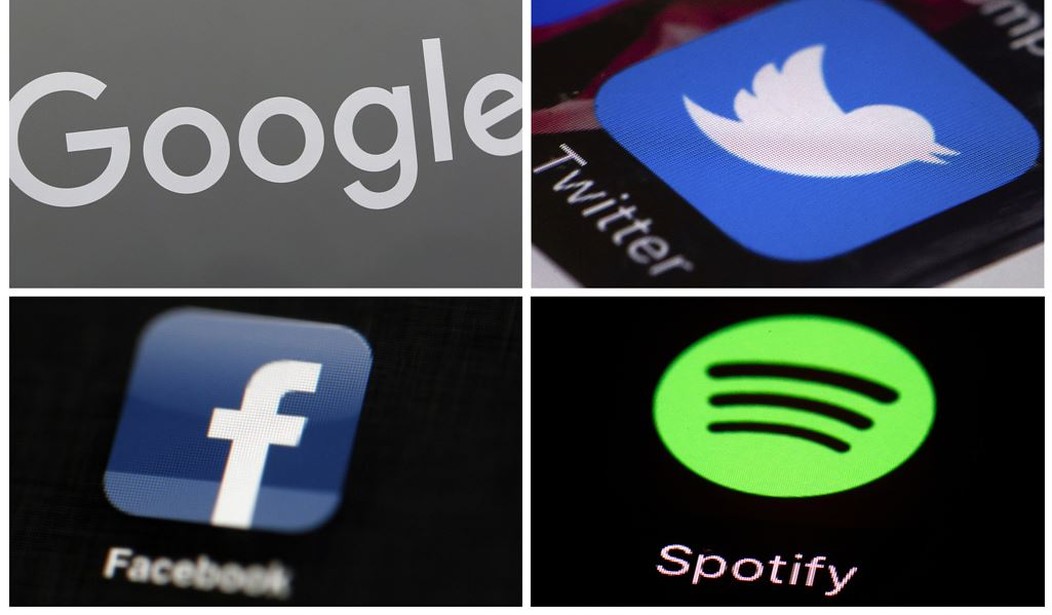The United States government, Big Tech and Cancel Culture have combined into a triple threat to the American Constitutional Republic American by laying siege to the Bill of Rights, particularly the right to freedom of speech.
Examples abound.
GoFundMe has interfered with the use of millions of dollars raised on its platform by the “Freedom Convoy” of Canadian truckers.
YouTube has banned Dan Bongino
It is clearly the case that government is exerting much of this censorship by proxy. Witness, for example, White House Press Secretary Jen Psaki applauding Spotify for posting disclaimers on the Rogan podcast episodes and urging that “more can be done” to “call out … disinformation while also uplifting accurate information.”
Perhaps the most chilling form of censorship is the self-censorship set in motion by this triple threat of government, Big Tech and Cancel Culture. A new survey from The Foundation for Individual Rights in Education (FIRE) found that nearly 6 in 10 Americans believe Cancel Culture is a direct threat to our freedom. It is now commonplace for Americans to fear stating their opinions, lest they be ostracized, fired, humiliated, and, perhaps, left unable to earn a living. Many worry over not parroting
Recommended
Strong incentives now motivate more people than ever to not say what they truly mean. This can greatly diminish the quality of communication in this nation. Real exchanges of ideas and real problem solving is impossible if people won’t say what they really think.
Joe Rogan just became a famous example of how Big Tech platforms are subject not only to government coercion, but also to mob rule. The whole triple threat. Recording artists including Neil Young, Joni Mitchell and Nils Lofgren threatened to pull their music from Spotify, if Spotify did not throttle Rogan’s interviews with guests who question the prevailing CDC doctrine about the prevention and treatment of Covid-19.
The government rewards massive platforms like Facebook and Twitter with incredibly valuable protections from civil liabilities for publishing material that turns out to cause harm. Section 230 of Title 47 of the US Code treats those companies much like wireless operators (e.g. AT&T)--simply transmitting communications, not picking and choosing amongst them. This preferential treatment persists, even though Facebook and Twitter clearly do suppress certain kinds of
content. Why, then, don’t they lose their protections? Because the censorship they exert is government censorship by proxy.
If centralized platforms can play emperor of the airwaves or Internet at the subtle or overt urging of government, don’t think for a moment that wireless operators themselves will be immune to monitoring your communications and eventually shutting down some that the ruling elite politicians don’t like.
There is no reason to assume that having too many conversations on your mobile phone during which you speak negatively about mask mandates won’t, one day, during a future pandemic, get your phone turned off or the credit card you use to pay for it terminated. After all, the Patriot Act greenlighted eavesdropping on the communications of anyone who could represent a threat to America. Talk too much about how masks have a downside, and you may well qualify.
Centralized platforms will just enslave us more and more. There is no virtue in a government that usurps its citizens’ inalienable rights by leveraging willing companies to disrupt free commerce or the free marketplace of ideas.
The marketplace—when free of centralized control—is the best processor of information in the world.
The only way to resurrect and ensure freedom of speech and our other inalienable rights, as codified in the Bill of Rights, such that we remain a Republic, is to build alternative, decentralized platforms for the exchange of ideas and the exchange of money. These platforms function essentially as bulletin boards where ideas are posted or transactions are recorded, without anytyrannical politician, CEO, intelligentsia or mob “in control” of what those ideas are, who gets to read them, who gets to listen to them or watch them, or who gets to exchange funds, or for what.
Dr. Keith Ablow is the founder of www.Pain-2-Power.com leaders
























Join the conversation as a VIP Member